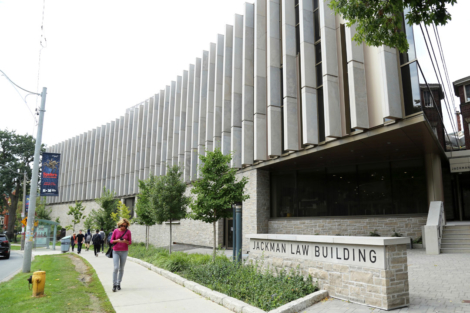Our education system needs to do better for disabled students
Re: “‘Ableist and discriminatory content’ described at training sessions for test invigilators”
The recent revelations coming out of Test & Exam Services (TES) are genuinely frightening for the many students who depend on TES and Accessibility Services for essential academic functions. TES has demonstrated an astonishing lack of care for the student population for which they are supposed to provide. This lack of care seems to be part of a larger, just-as-foreboding trend, which treats students like numbers, or ‘customers,’ rather than essential participants in an ever-changing institution.
While this trend may seem benign to many ‘abled’ students, it is destined to hit disabled students particularly hard. The idea that students are simply customers of a business produces a dangerous drive to optimize student results, particularly quantifiable, academic ones. Of course, this is never a good idea, and goes directly against the premise of modern higher education, but it is especially harmful to students who do not fit an optimizable academic ‘mold’ — namely disabled students.
The content present in the TES employee training material demonstrates a disturbing lack of understanding of disabled students’ basic needs. They ignore the scientifically-validated truth that many disabled students are capable of exemplary academic function with the right tools. Focusing on correcting ‘problematic’ behaviour — indeed, focusing on this behaviour at all, rather than the environment that brings it about — is dismissive of the truth that disabled students live every day.
Our education system should not be leaving disabled students behind. It should be finding more holistic ways to include them. Whether or not the individuals behind the TES training intended to focus on behaviour rather than identity, their approach is wrong from a human rights standpoint. The focus on optimizing behaviour rather than understanding it is cruel and will only leave deserving students behind.
As a student registered as disabled, I have used TES many times. My life at university would be much worse without them. The invigilators at TES have always been nothing but kind and understanding. They have always catered to my needs and the needs of those around me. But our understanding of the needs of disabled students must continue to grow as the education system becomes more humane and interdisciplinary.
If the repressive and discriminatory environment at TES continues to exist, these invigilators will not be able to provide for disabled students, and a large, deserving population of students will be left in the dark.
Arjun Kaul is a fifth-year Neuroscience student at St. Michael’s College.
Ford should heed the advice of U of T law professors
Re: “U of T law professor pens open letter against Ford’s threat to use notwithstanding clause”

The letter was written primarily by U of T law professor Brenda Cossman. SHANNA HUNTER/THE VARSITY
Over 80 Ontario law professors have signed an open letter directed at Premier Doug Ford’s threat to invoke section 33 of the Canadian Charter of Rights of Freedoms, also known as the notwithstanding clause, in order to pass legislation that would cut the size of Toronto’s city council in half.
The legislature’s ability to waive sections of the Charter without explanation is unnerving, and as such should only be considered when all other avenues have been exhausted. The purpose and power of the Charter would be undermined if section 33 was invoked any time a Premier was frustrated with the limitations it imposes. Ford’s actions reflect a troubling view that the Charter is simply a set of suggestions that can be overruled when desired. However, the role of the judiciary is to be a non-partisan actor and to make sure that legislation is in line with the rights and freedoms granted in the Charter.
The letter warns that if such a role is to be challenged, it could lead us down a slippery slope further and further away from Canada’s democratic principles. While the notwithstanding clause exists in writing, it should not be used in practice without careful consideration. If the rights granted to Canadians can be so easily thrown away, what point do they serve?
Yasaman Mohaddes is a fourth-year Political Science and Sociology student at St. Michael’s College.


